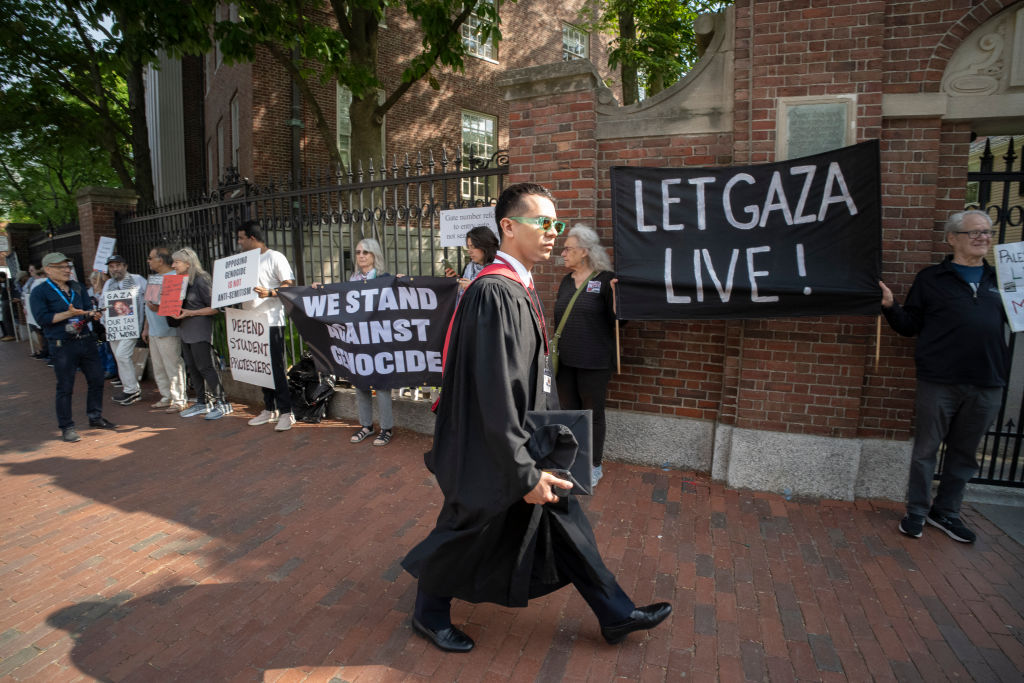Cornell University announced on Monday that its president and provost will refrain from making statements on issues that do not directly impact the school. This makes it the second Ivy League university to adopt such a policy in pursuit of institutional neutrality, after Harvard.
The school pledged that its response to expected protests in the coming months will be content-neutral, and said it will need to balance free speech rights with the legal obligation to protect students from harassment and discrimination. “Thus it is our responsibility and our obligation to enforce our policies ensuring that speech or actions by some members of our community does not violate the rights of others,” the announcement read.
This spring, Cornell was subject to widespread media coverage of its campus protests over the war in Gaza, with one piece in Tablet describing a campus culture which was hostile to “normal” students — including the one-third of the student body who belong to Greek life — and permissive of rule-breaking protests and encampments. The university also received pushback from pro-Israel donors and alumni, who expressed concerns about campus antisemitism. Going forward, Cornell will ensure that protests, particularly encampments, do not block other students from accessing campus spaces.
Institutional neutrality, most famously articulated in the 1968 Chicago Statement, is a policy under which universities remain neutral on hot-button issues in order to protect academic freedom for staff and students. In past years, most notably during the racial reckoning of 2020, American universities took stances through official statements in violation of this principle. After years of taking public stands, universities were slow to publish statements in the wake of the 7 October attacks and the ensuing war in Gaza, angering those on both sides of the debate and leading to a donor revolt by pro-Israel alumni as well as months-long anti-Israel campus protests that derailed the academic year at many Ivy League universities.
The debacle of the past year has prompted a change of heart among university leaders. Earlier this month, Johns Hopkins University announced that its president, provost and deans would no longer make public statements on current events unless they were directly related to the functioning of the university, instead adopting a “policy of restraint”. There has been a growth in demands for the university to make official statements in recent years according to the announcement, which explained that such statements “can be at odds with the university’s function as a place for open discourse and the free exchange of ideas”.
“The very idea of an ‘official’ position of the university on a social, scientific, or political issue runs counter to our foundational ethos […] to be a place where competing views are welcomed, challenged, and tested through dialogue and rigorous marshalling,” university leaders wrote.
As with other universities’ policies, this update at Johns Hopkins is not intended to prevent staff from engaging in politics. “In fact,” the announcement read, “one intent of the commitment is to extend the broadest possible scope to the views and expressions of faculty, bolstering faculty in the exercise of their freedom to share insights and perspectives without being concerned about running counter to an ‘institutional’ stance.”
Harvard implemented a similar policy in the spring, indicating that university staff wanted to move away from official statements and instead adopt institutional neutrality.
“We value free and open inquiry and expression – tenets that underlie academic freedom – even of ideas some may consider wrong or offensive,” Cornell’s core values state. “Inherent in this commitment is the corollary freedom to engage in reasoned opposition to messages to which one objects.”











Join the discussion
Join like minded readers that support our journalism by becoming a paid subscriber
To join the discussion in the comments, become a paid subscriber.
Join like minded readers that support our journalism, read unlimited articles and enjoy other subscriber-only benefits.
Subscribe